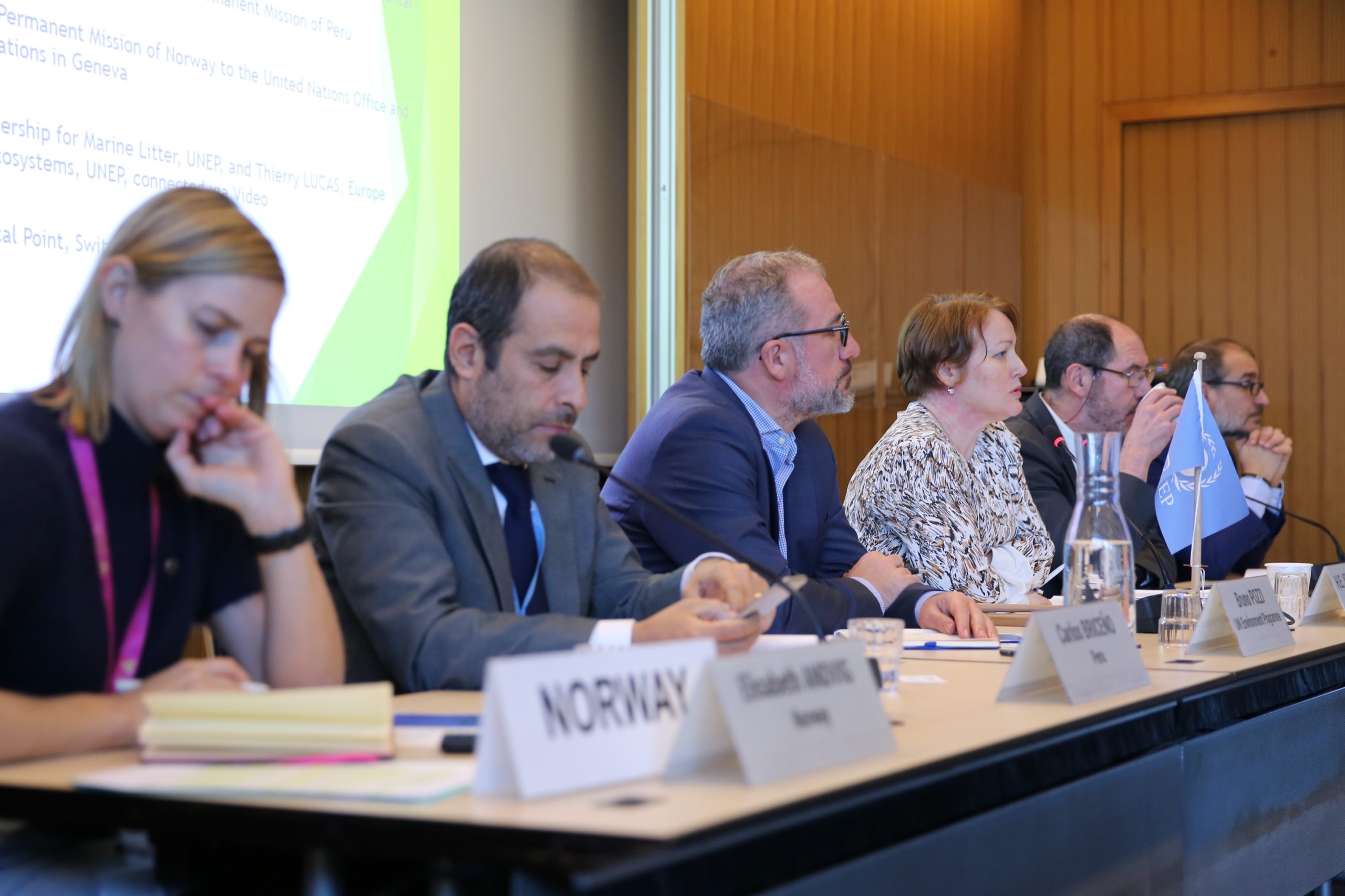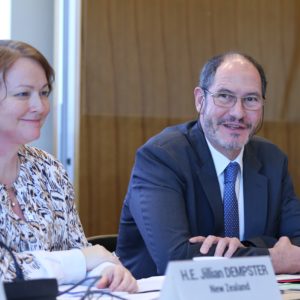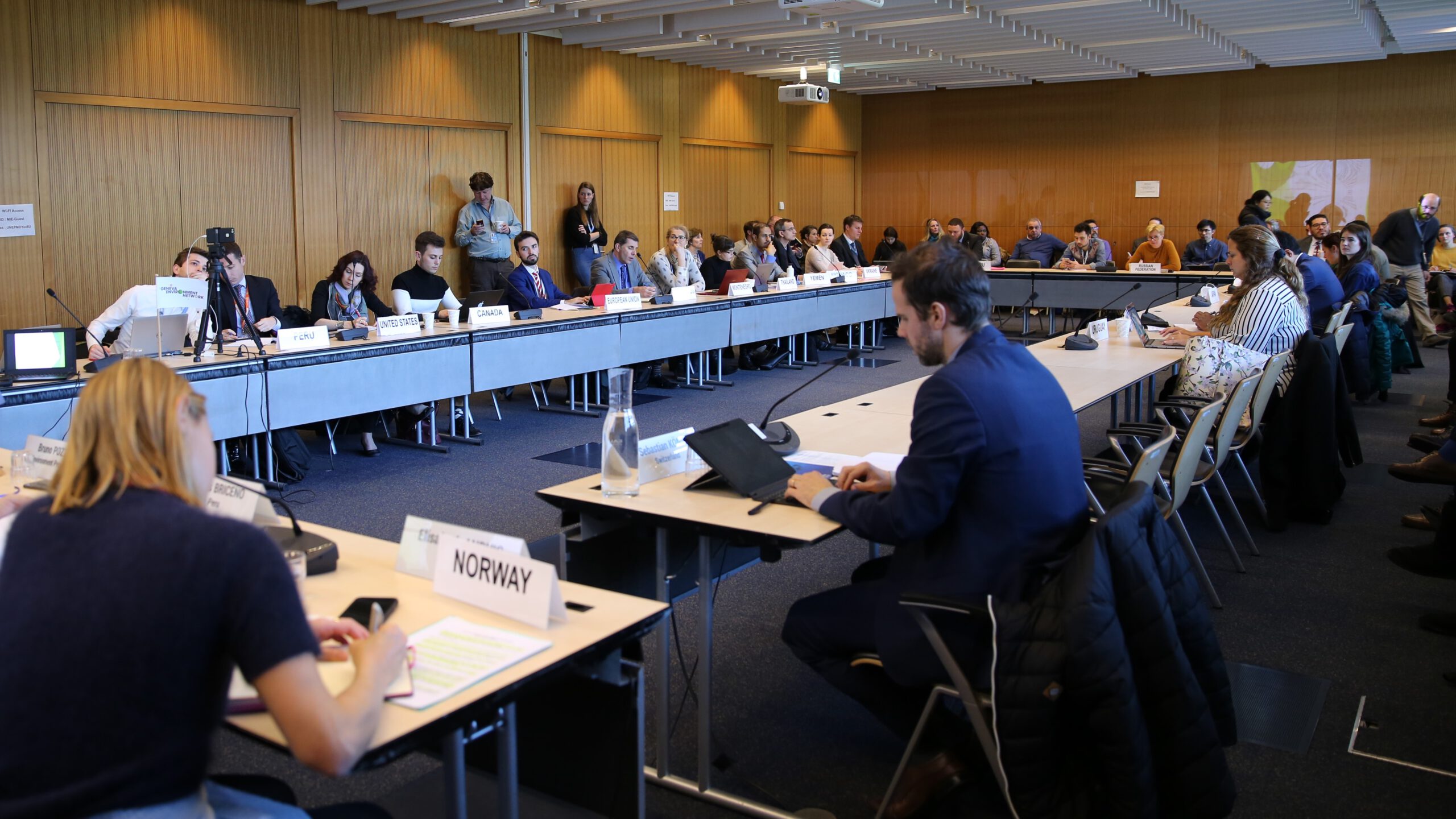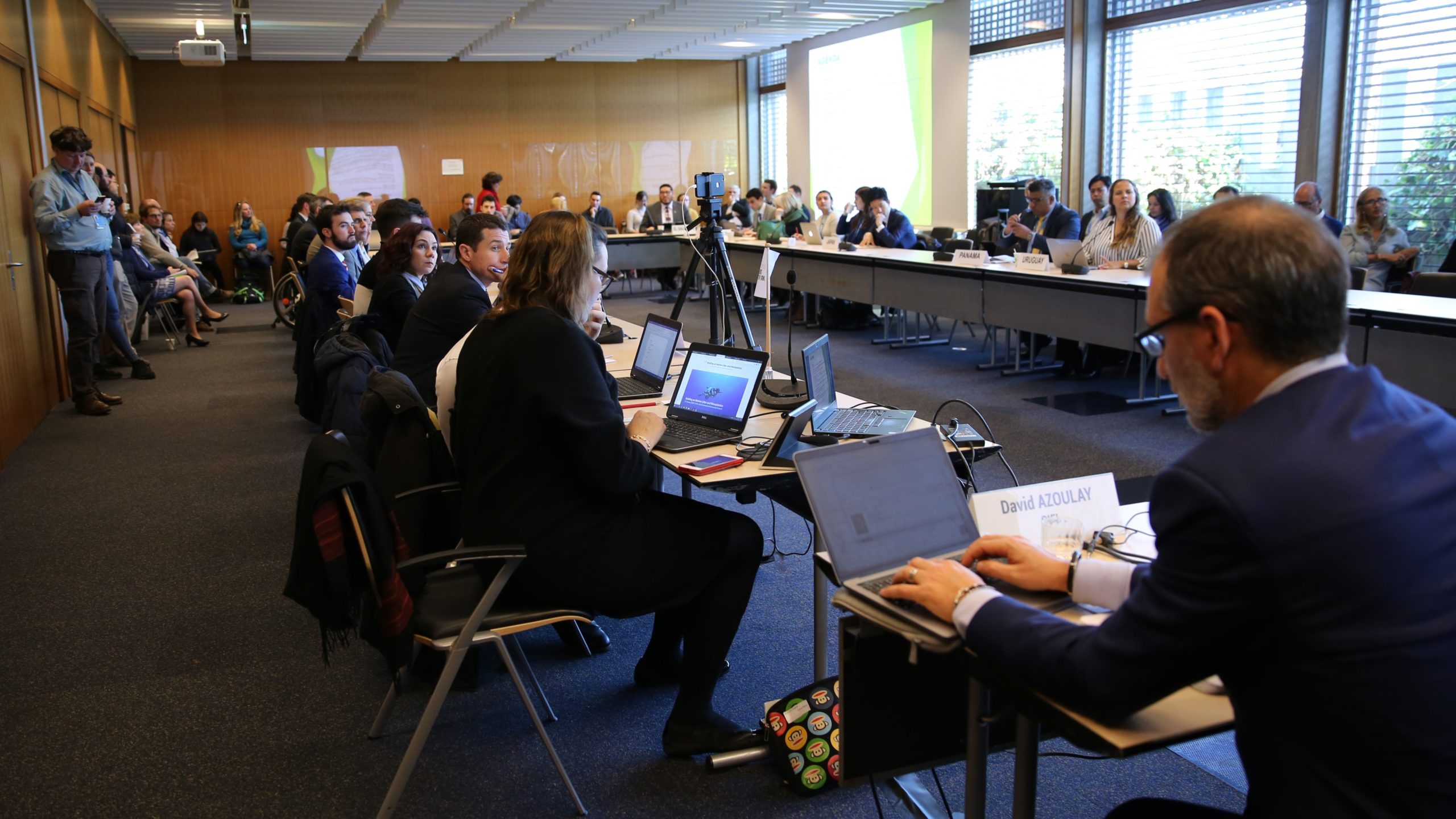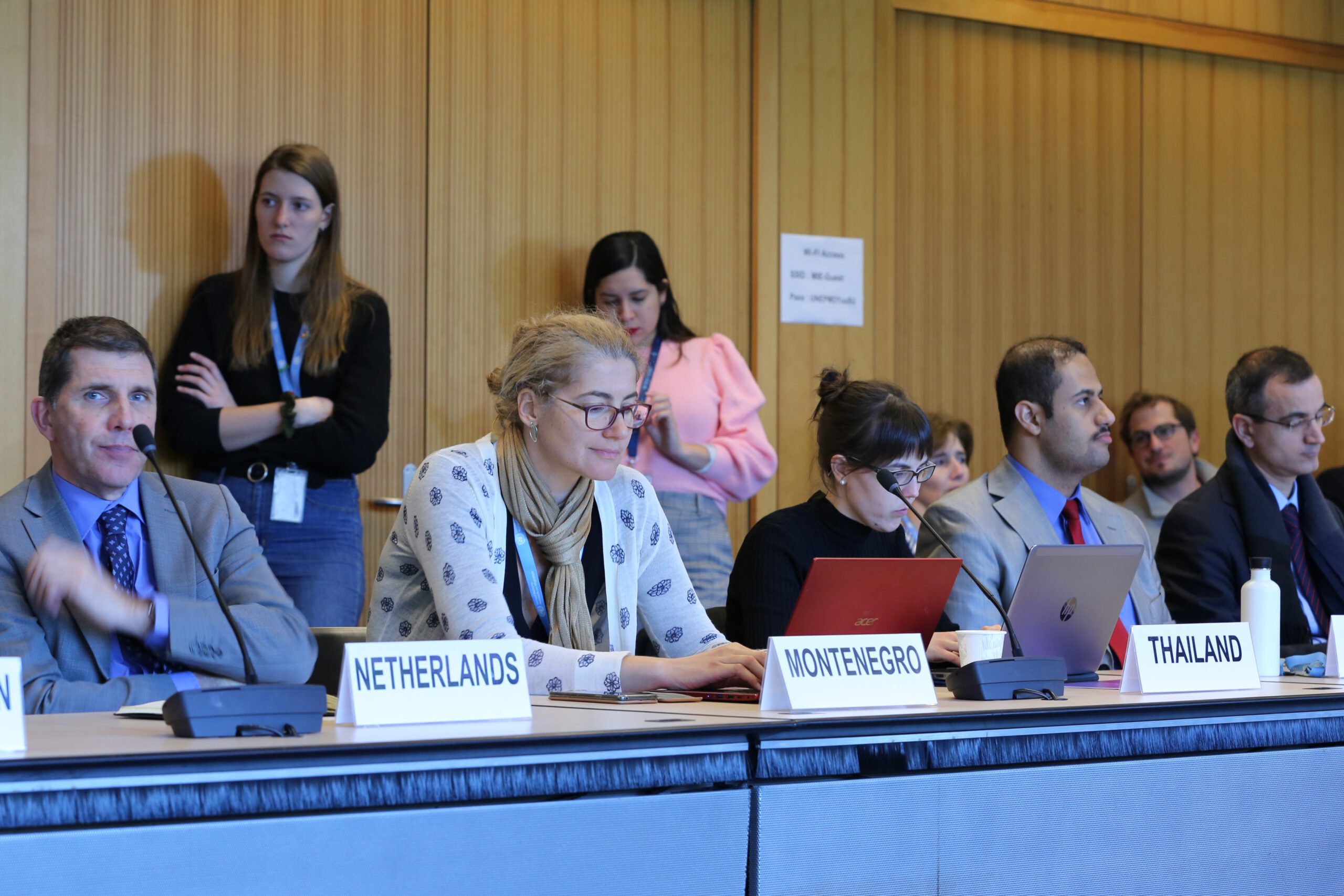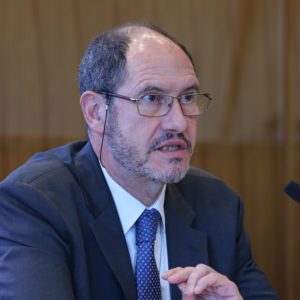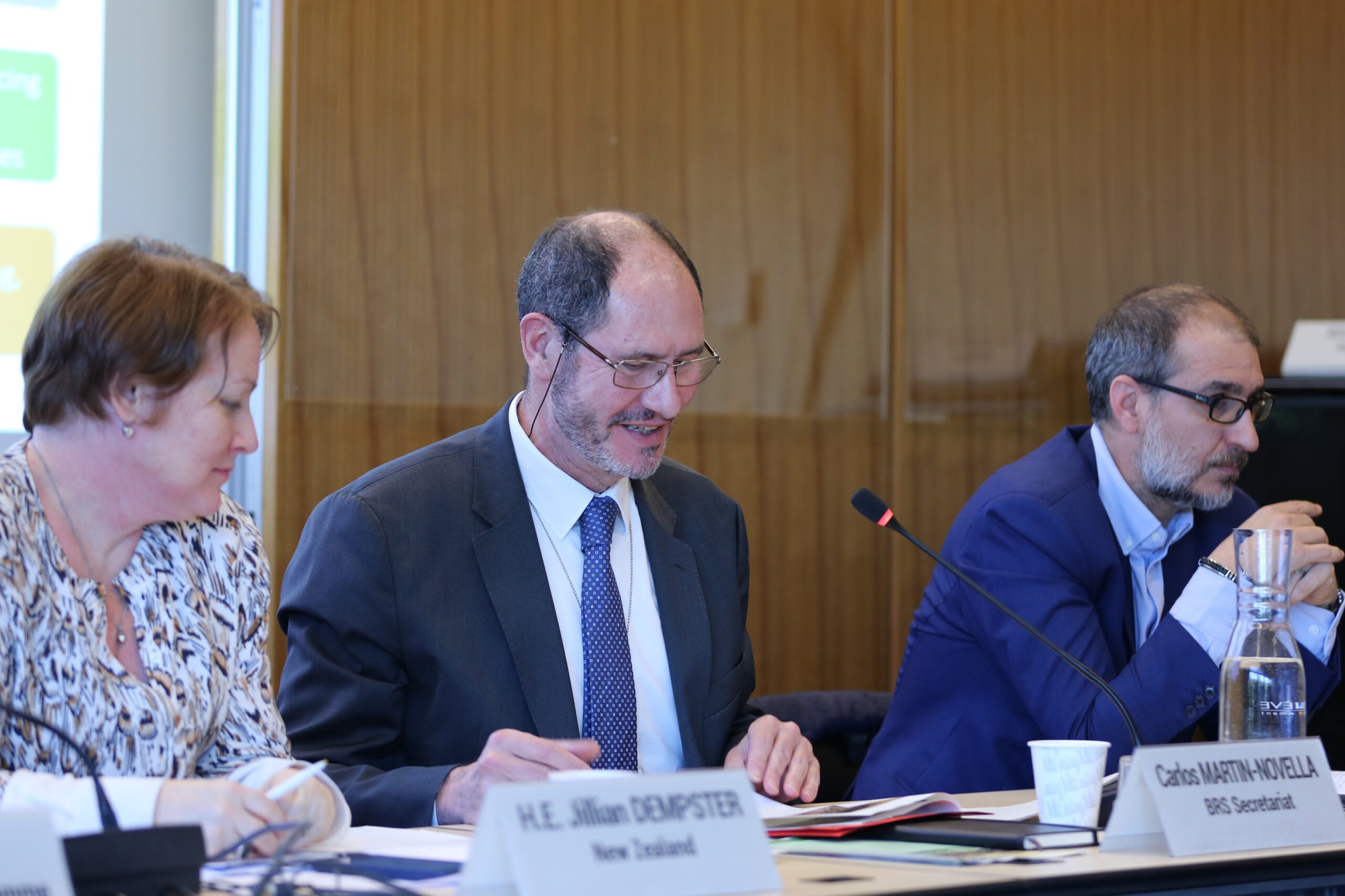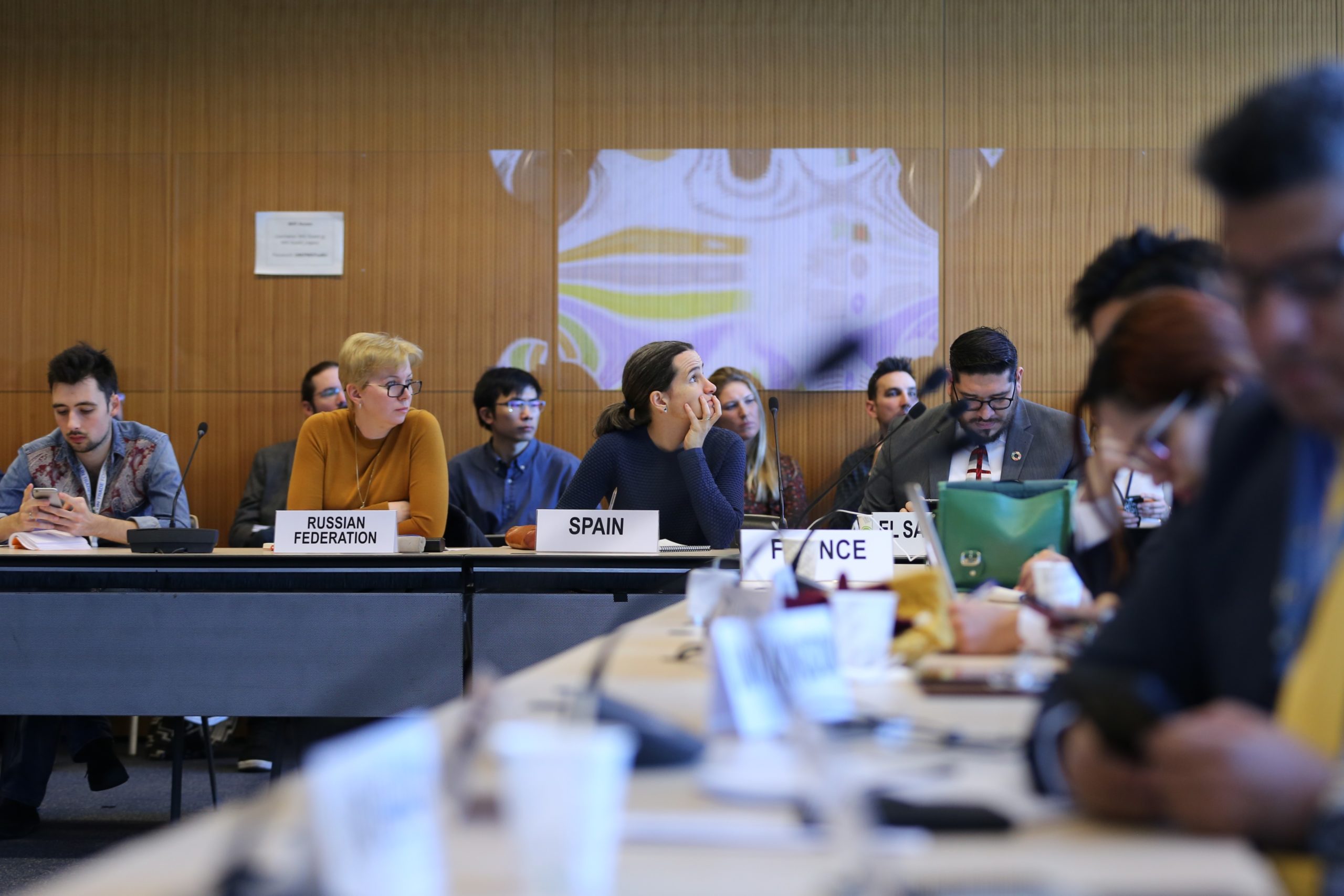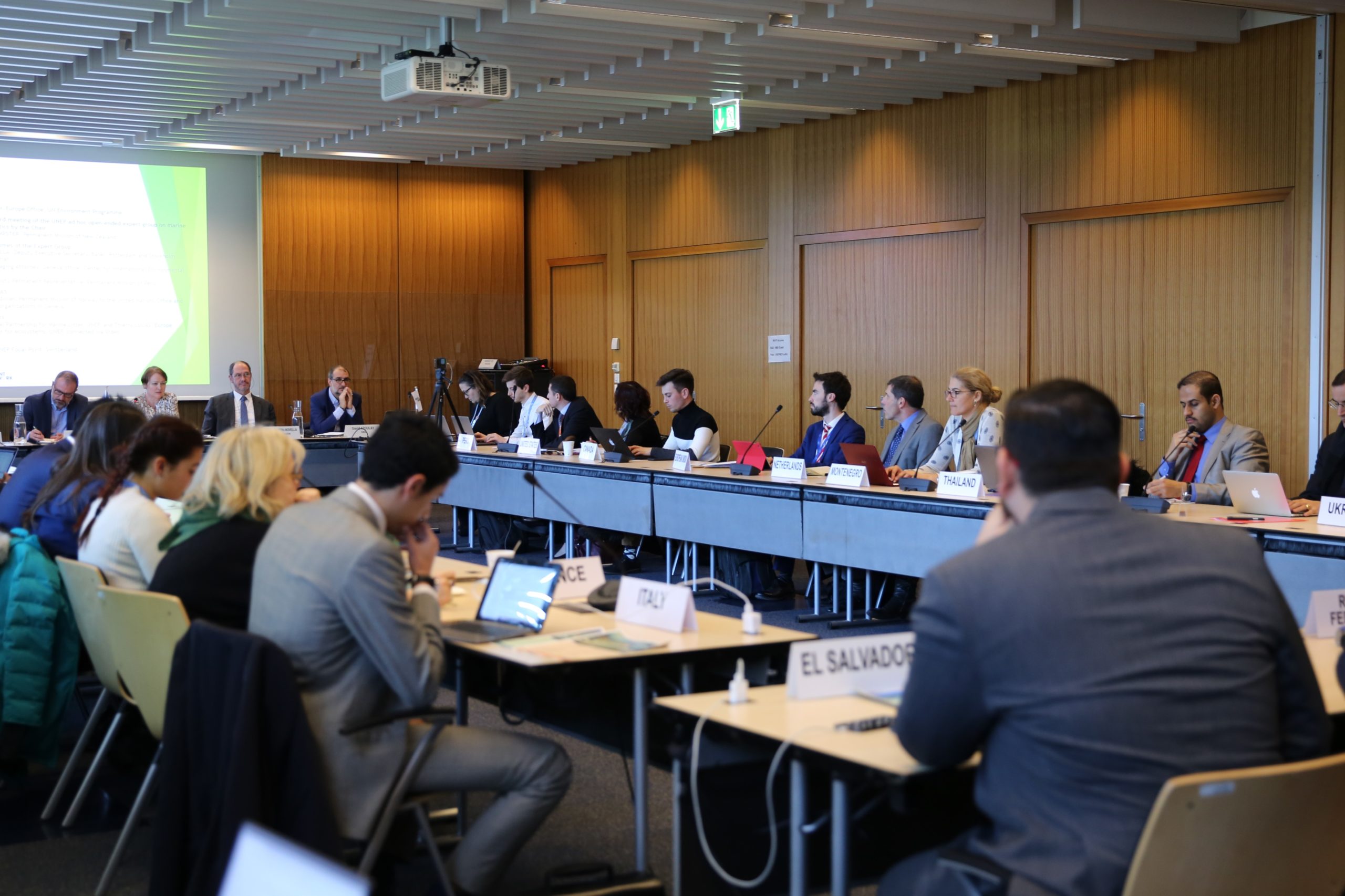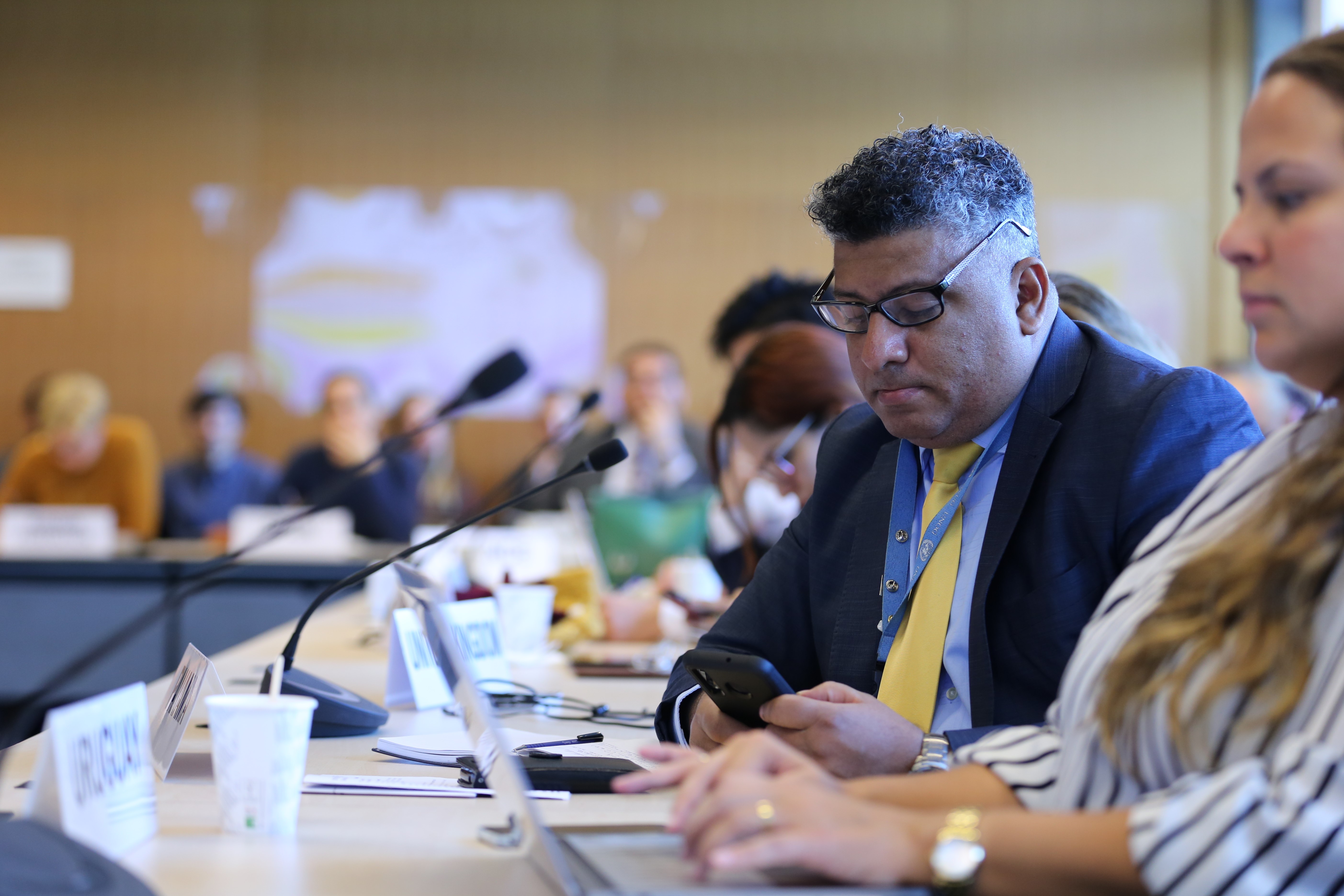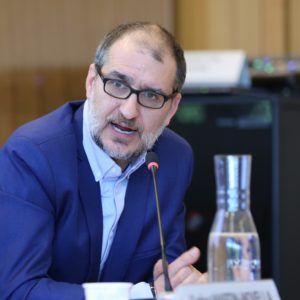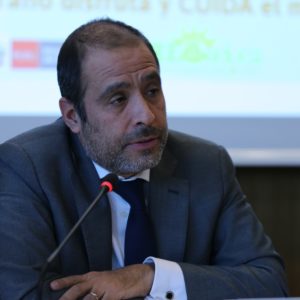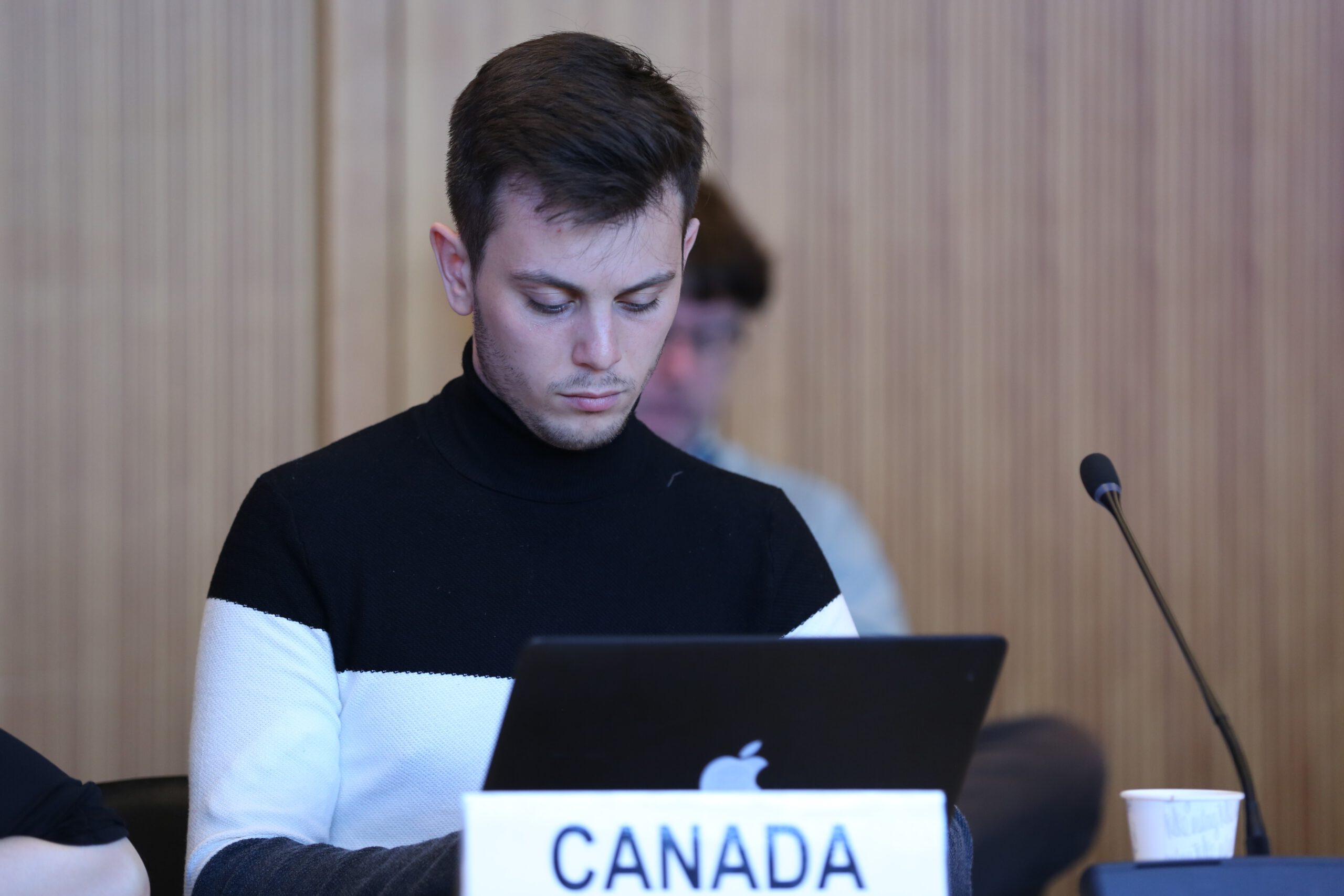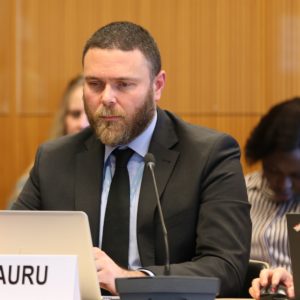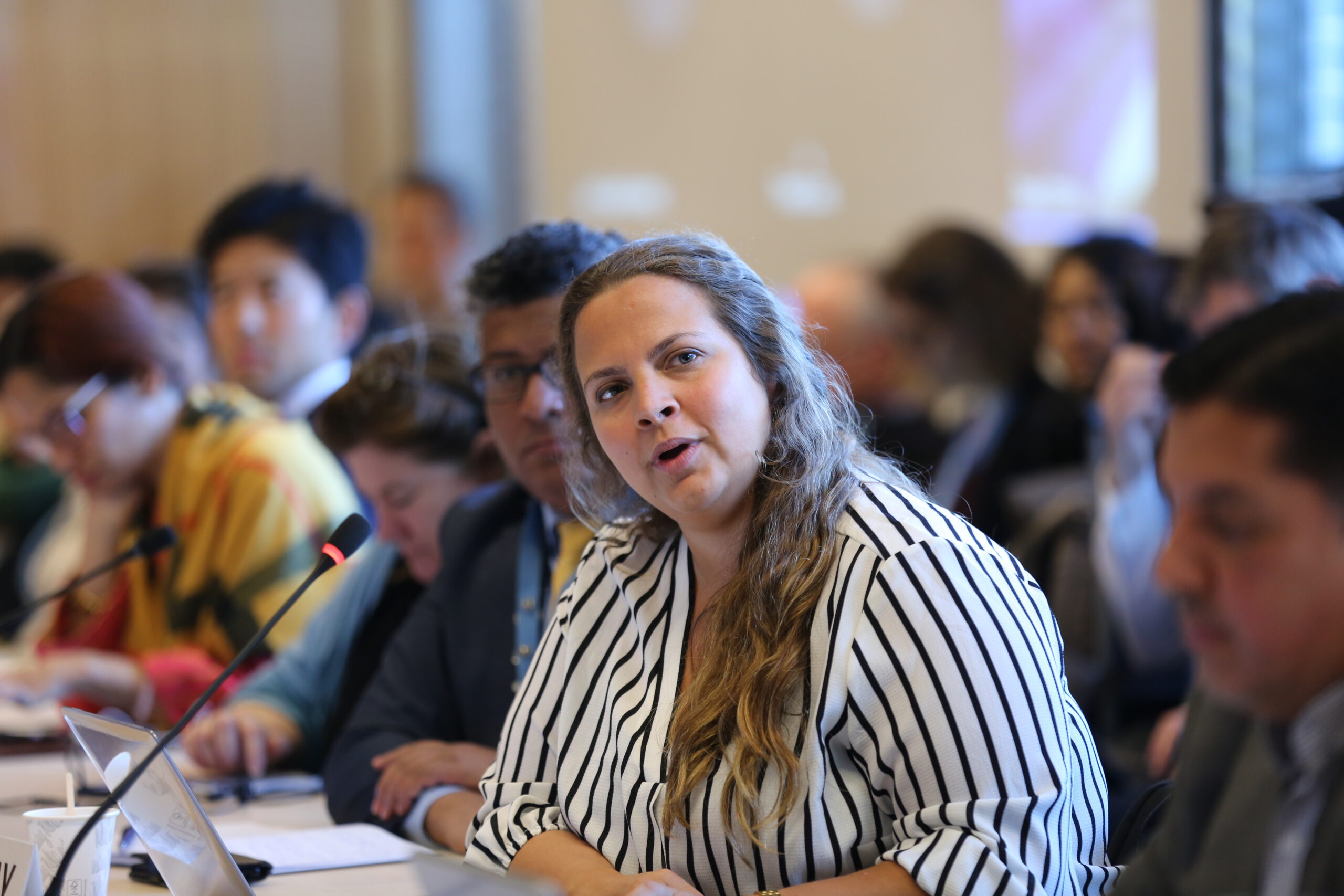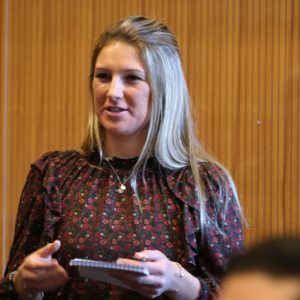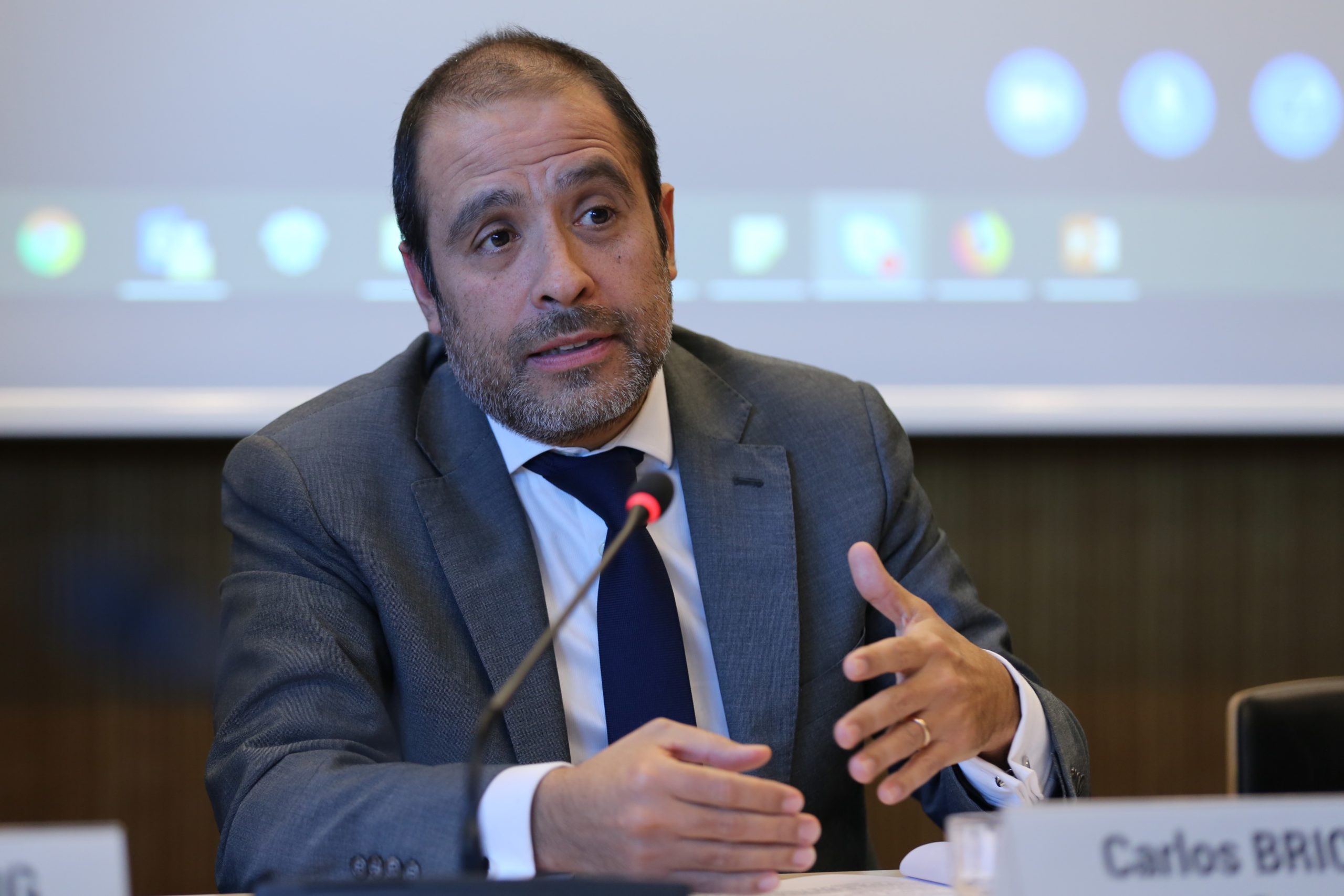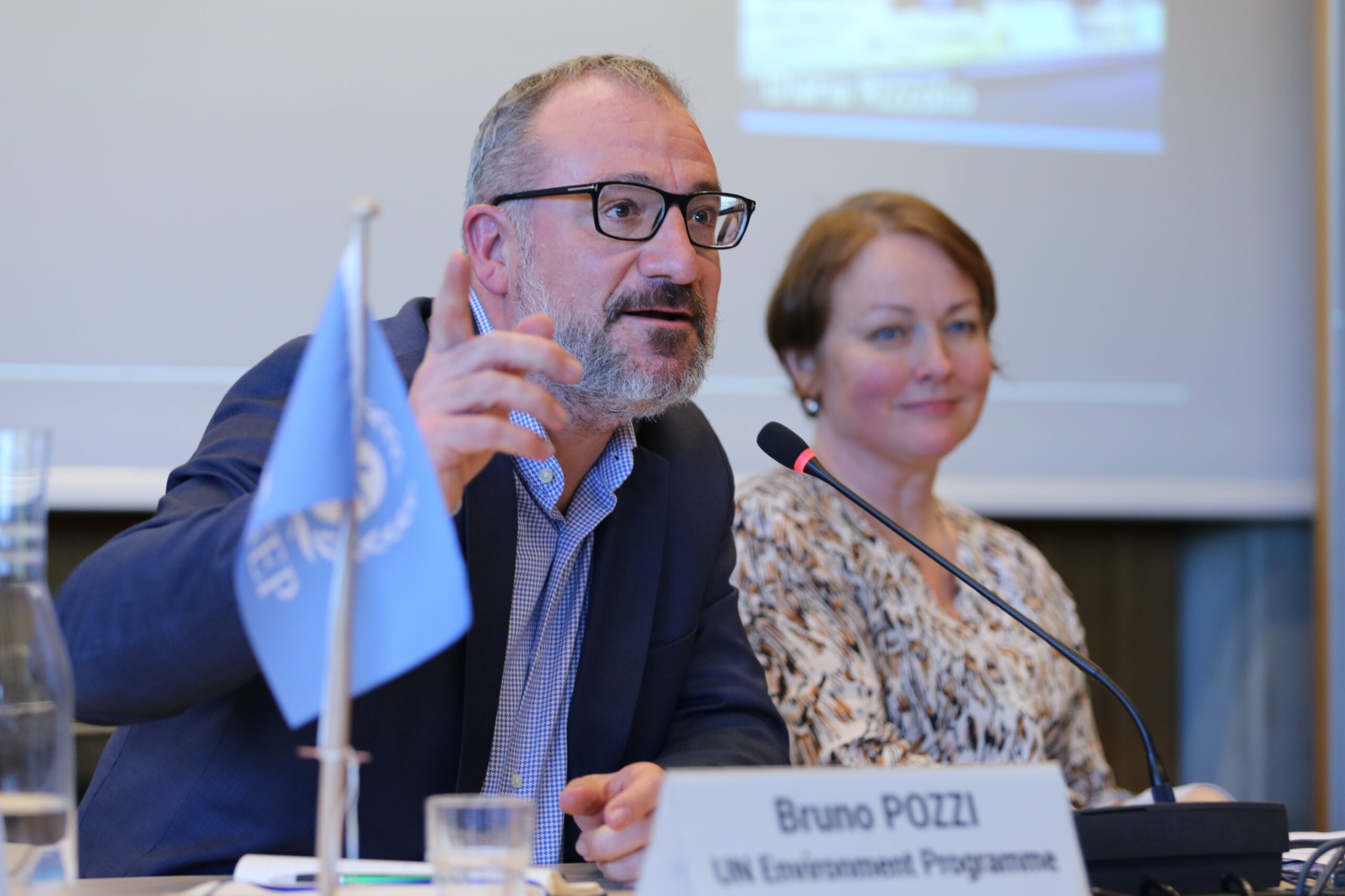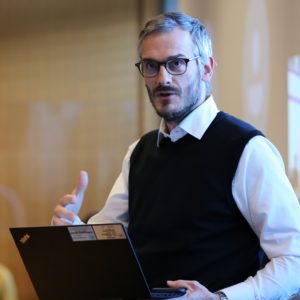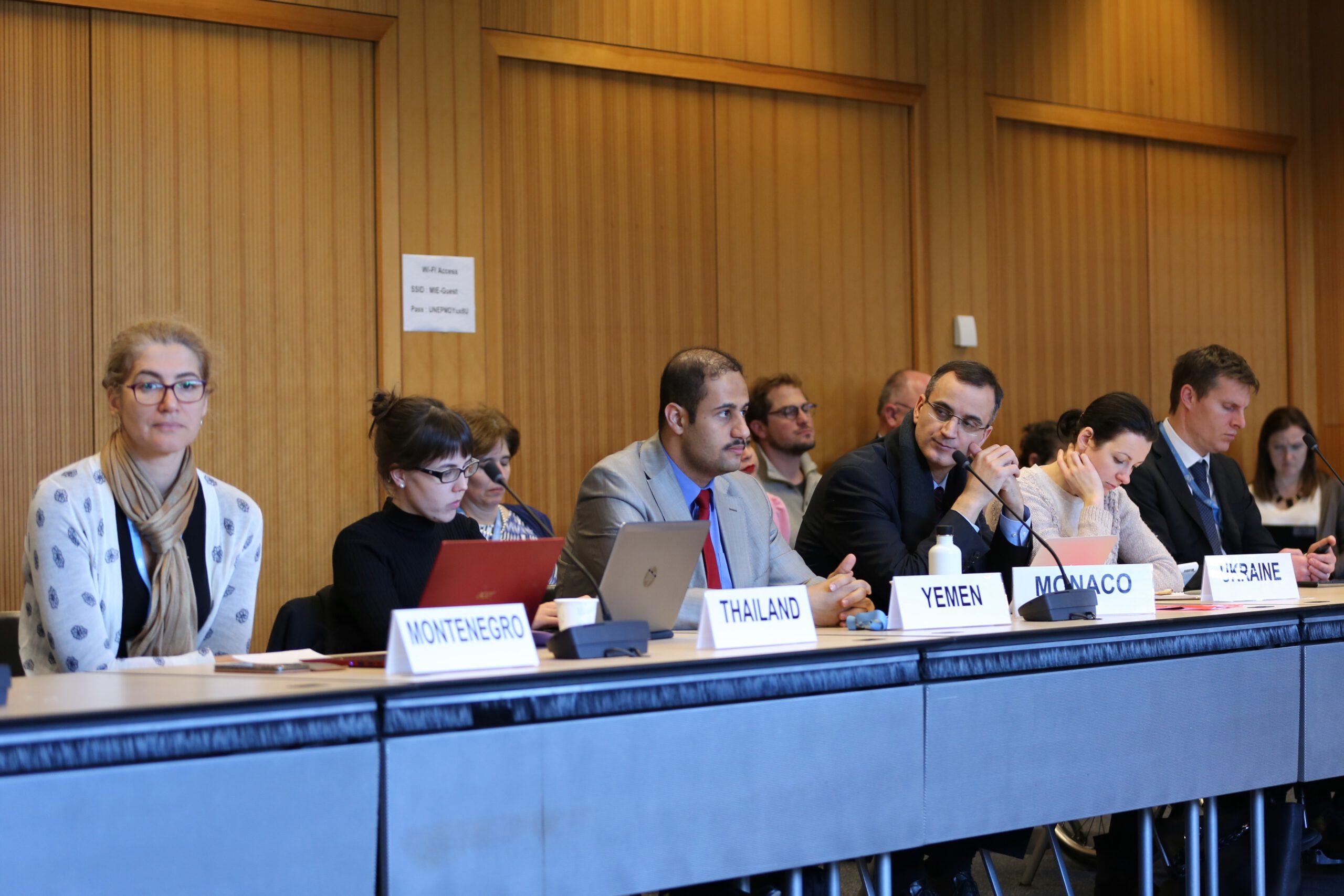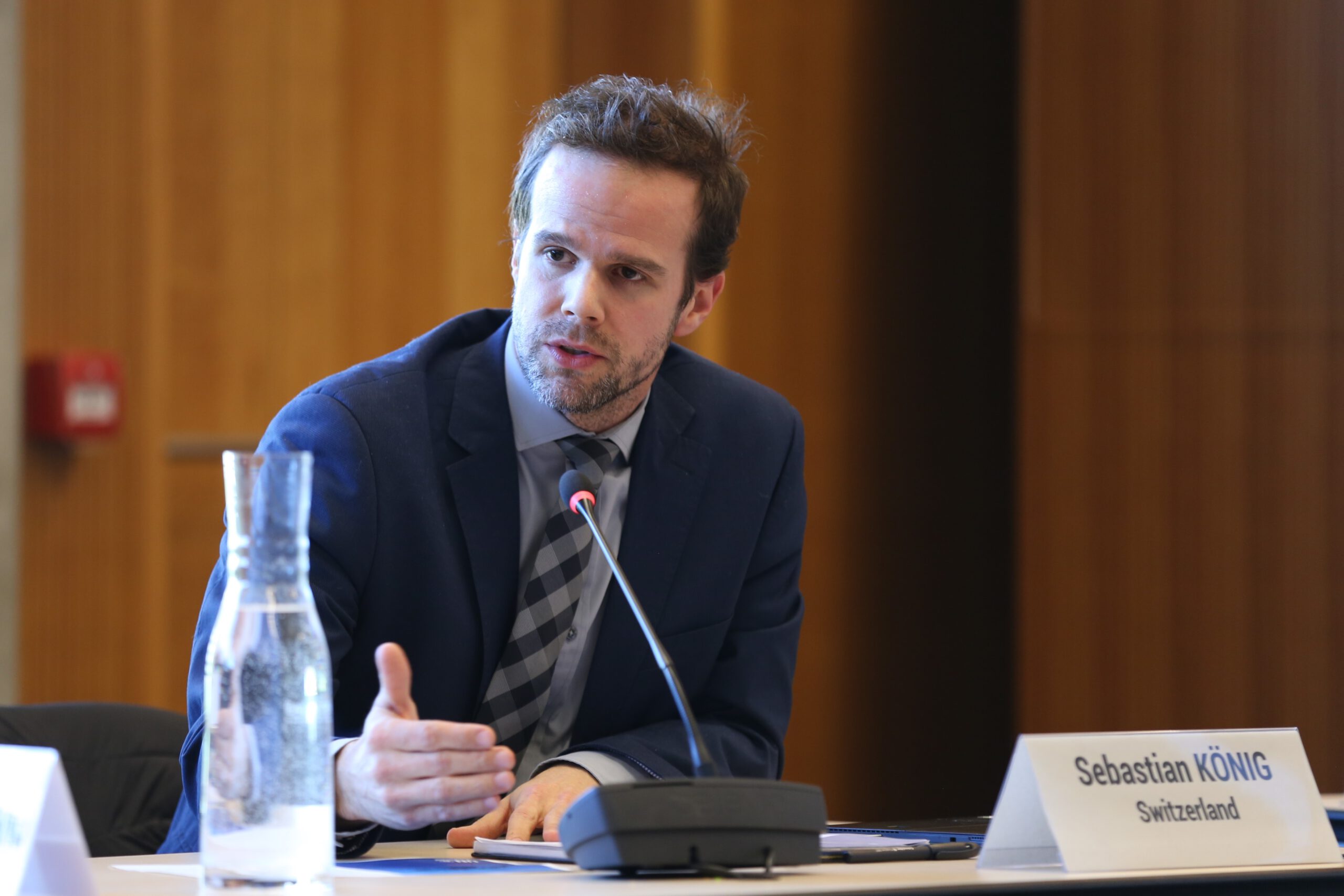Event Conference
Briefing on Marine Litter and Microplastics
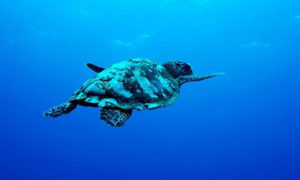
21 Jan 2020
13:00–14:30
Venue: International Environment House II (7-9 ch. de Balexert)
Organization: Geneva Environment Network
This event, organized within the framework of the Geneva Environment Network, discussed the outcomes of the third meeting of the Ad Hoc Open-Ended Expert Group on Marine Litter and Microplastics that was held from 18-22 November 2019 in Bangkok, Thailand.
About this Session
Marine plastic litter and microplastics is a serious and rapidly growing issue of global concern which requires an urgent and global response, involving all relevant actors at all levels.
The Ad Hoc Open-Ended Expert Group was established in response to the resolution UNEP/EA.3/Res.7, on marine litter and microplastics, adopted by the United Nations Environment Assembly at its third session, in December 2017. It looks at international governance options for tackling plastic waste.
A draft meeting report of the expert group was presented and adopted at the meeting, subject to completion and final clearance by the meeting Rapporteur. The expert group also adopted the an outcome document, which will be annexed to the meeting report.
Agenda
Welcome
Bruno POZZI, Director, Europe Office, UN Environment Programme
Outcomes of the third meeting of the UNEP ad hoc open-ended expert group on marine litter and microplastics by the Chair
H.E. Amb. Jillian DEMPSTER, Permanent Mission of New Zealand to the United Nations Office and other international organizations in Geneva
Discussing the outcomes of the Expert Group
Carlos MARTIN-NOVELLA, Deputy Executive Secretary, Basel, Rotterdam and Stockholm Conventions Secretariat
David AZOULAY, Managing Attorney, Geneva office, Center for International Environmental Law
Carlos BRICEÑO, Deputy Permanent Representative, Permanent Mission of Peru to the international organizations in Geneva
On the road to UNEA5
Elisabeth ANDVIG, Adviser, Permanent Mission of Norway to the United Nations Office and other international organizations in Geneva
Questions & Answers
Heidi SAVELLI, Global Partnership for Marine Litter, UNEP, and Thierry LUCAS, Europe Regional Coordinator for ecosystems, UNEP, connected via Video
Closing remarks
Sebastian KÖNIG, UNEP Focal Point, Switzerland
Summary
Welcome
Bruno Pozzi, Director, Europe Office, UN Environment Programme
- Discussion focused on the results of the Ad Hoc Open-Ended Expert Group on Marine Litter and Microplastics
Outcomes of the third meeting of the UNEP ad hoc open-ended expert group on marine litter and microplastics by the Chair
H.E. Amb. Jillian Dempster, Permanent Mission of New Zealand to the United Nations Office and other international organizations in Geneva
- Chair of the Ad Hoc Open-Ended Expert Group on Marine Litter and Microplastics
- Meeting in Bangkok, from 18 to 22 November 2019 – constructive spirit of participants
- Decide what to do before UNEA5 in order to fulfil the mandate given through resolutions
- Establish a work programme + discuss with each other + information to go more in depth in the mandate
- Resolve common concerns around marine litter and microplastics
- Very wide topic – narrow it down to manageable chunks
- Very important discussion – making progress
- Break down into work-like chunks
- Online platform “one-stop shop” with all information, documentation, reports of the discussions in the meetings and the direction of travel for future meetings
- In Bangkok:
- More than 200 participants: 85 UN Member States + civil society and stakeholders
- Rich discussion focused on stocktaking of existing work on marine litter, financial and technical resources and mechanisms as well as partnerships and effectiveness of existing measures
- Outcome document – heavy tasks for the Secretariat related to:
- Analysis of the options so far pursued on this issue
- More comprehensive stocktaking, drawing from existing and new information (Basel Convention, G20, …)
- Call to refresh submitted ideas
- The Bureau for the Expert Group, consisting of New Zealand, Kenya, Japan, Russia and Guyana, will decide soon on the venues for the 4th and 5th meetings of the AHEG, with offers from Peru and Rwanda that are currently on the table
Discussing the outcomes of the Expert Group
Carlos Martin-Novella, Deputy Executive Secretary, Basel, Rotterdam and Stockholm Conventions Secretariat
- Marine litter includes plastic waste, but is not limited to it
- Plastic does not all end in oceans
- Basel Convention – plastic waste as such was not a focus of the Convention
- Do whatever we could to address the problem of plastic waste – proposal to amend the Convention to address the issue of plastic (on the initiative of Norway, Argentina and the European Union)
- In 6 months, the Convention was amended (average time is about 7 years)
- Now we have the Convention that looks seriously at plastic waste:
- Control transboundary movements through Prior Informed Consent Procedure
- Environmental Sound Management – treat waste in and environmental sound manner – obliges countries as well as operators
- Prevention and minimisation of production of waste
- Basel Convention Plastic Waste Amendment – update on the Convention + partnership established at the COP and reporting to the COP on developing policies and practices to reduce plastic waste
- Basel Convention Plastic Waste Partnership (PWP) – co-chairs are Norway and the Bureau of International Recycling, meeting in the Seychelles from 2-5 March 2020, focused on:
- Policy and regulatory frameworks
- Environmentally-Sound Management of plastic waste
- Involvement of private sector
- Outreach, awareness-raising and education
- Strong support from Norway, France, Canada, Japan and Switzerland
- Enhancing the technical assistance linked to policy-making
- In Bangladesh and Ghana – promotion of and technical assistance on Environmentally-Sound Management of plastic waste and minimisation of production of plastic waste – better understand urban waste management, operators’ plastic management, main rivers’ situation to provide better help and assistance
- Next meetings:
- BRS COPs: 17-28 May 2021
- Basel Convention OEWG-12: 22-25 June 2020
- Outcomes must feed in UNEA process and vice-versa
David Azoulay, Managing Attorney, Geneva office, Centre for International Environmental Law
- What are we supposed to be doing?
- This question led to the establishment of the Ad Hoc Open-Ended Expert Group on Marine Litter and Microplastics
- Report to better understand the governance mechanisms that we have in addressing plastic waste – quite a lot exists + quite a lot can be done to expand these mechanisms
- Number of gaps and need to develop additional solutions – base of establishment of the Expert Group
- Delivering on the mandate – note that a lot of work has done during first meeting (extension in time and content of the mandate), but there’s a risk of paralysis by analysis – very important is to focus on concluding the questions raised to allow for a decision on UNEA5
- A lot of declarations by officials indicating as the possible end goal of this discussion – establish global legal framework to address the issue
- In order to address this problem we must consider it, not as an oceans issue, but as a plastic issue – all life cycle of the plastic (production, consumption, waste management) must be taken into account
- One year to conclude work – two main outcomes from the Bangkok meeting:
- sets us on a path where we can deliver recommendations for response options (two more meetings to have a faster response)
- clarification of the AHEG’s mandate to deliver clear options to UNEA
- Discussion went beyond expertise to reach governance models – encouraging to see large (regional) representation + combination of (local) experts and high-level representatives
- Take in all the knowledge that is converging to have a meaningful impact and take effective decisions in UNEA5
Carlos Briceño, Deputy Permanent Representative, Permanent Mission of Peru to the international organizations in Geneva
- Peruvians are proud of their gastronomy – fish is a big part of the Peruvian diet
- More than 3000 km of coastal extension on the Pacific Ocean
- By 2050 it is expected that we will have more plastic than fish
- Very vulnerable because of its coast on the Pacific Ocean – harm on fisheries, tourism, wildlife
- First, Peru developed laws to fight plastic pollution:
- 2017: law on Integral Management of Solid Waste – reduce generated waste, use materials more efficiently and see waste as a resource
- 2018: National Plan on Competitiveness and Productivity 2019-2030 – prioritises generating conditions to transition to circular and eco-efficient economy
- 2018: Global Agreement on the New Plastics Economy promoted by the Ellen MacArthur Foundation – move towards a circular economy
- 2018: law regulating single-use plastic and disposable containers
- Secondly, Peru developed information campaigns:
- “Clean Peru” campaign: improve solid waste management by giving responsibility to citizens
- “Save the Beach” campaign: focused on marine litter and the reduction in single-use plastic on beaches
- “I don’t want this in my ceviche” campaign: raising awareness on microplastic and their consequences on wildlife and health
- Cleaner Production Agreements – voluntary commitments to improve materials in production processes and reduce the amount of waste generated
- Transboundary effects problem – collaborative action from governments, industry and consumers
- Ad Hoc Open-Ended Expert Group on Marine Litter and Microplastics, created in 2017, its mandate renovated in 2019 – positive discussions, exchange of information formed expertise in Peru for the regulations of single-use plastic products
- Expert Group should focus on core mandate – tackle marine litter on global level: response to marine litter and microplastics aligned to the SDGs and to the Agenda for Sustainable Development, accounting for regional circumstances, having an approach oriented towards circular economy, taking into account marine and land sources of plastic waste pollution, involving the science-policy interface as well as a multi-stakeholders interface
- New governance structures are not in contradiction with the current efforts
- Peru offered to host one of the next meetings of the Ad Hoc Open-Ended Expert Group on Marine Litter and Microplastics, in Lima
On the road to UNEA5
Elisabeth Andvig, Adviser, Permanent Mission of Norway to the United Nations Office and other international organizations in Geneva
- Recent reports in Norway – salmon in rivers contains microplastic in the meat of the fish
- Supportive of agenda to solve microplastic and marine litter
- Moving to UNEA5 – strengthening global governance on this issue – key to solve this topic
- Expert group is focusing on this and Norway supports it – need for strong recommendations
- Regions have shared goals and aims for this process
- The Nordic Council, convening in Reykjavik, stated that it strongly supports an agreement to address this issue
- Do not forget existing mechanisms and treaties (PWP, BRS, …) doing efforts on the issue
- Enhance regional cooperation to address specific contextual challenges
- Sum of what has happened – holistic response is needed to provide a common direction to address the issue
- Report by Nordic Council coming out on what elements should be included in the new agreement at UNEA5
Questions & Answers
Heidi Savelli, Global Partnership for Marine Litter, UNEP
- Opportunities and inputs are available
- Welcome inputs from governments and stakeholders
Thierry Lucas, Europe Regional Coordinator for ecosystems, UNEP, connected via Video
- Complex situation and one year to come up with options
- Several initiatives
- Important to find common ground that can be presented to UNEA5
- One year is a very short span of time to reach an agreement
Ecuador
- Ecuador has been a strong supporter of a global solution to the problem of plastic waste, particularly at Rio+20
- Evolution of discussion not linear, there have been obstacles
- Need for global legal framework, perhaps other options should be explored if UNEA does not arrive to an agreement (General Assembly, …)
Uruguay
- Uruguay has had a strong commitment on this issue
- Co-sponsored proposals with Norway as well as the creation of PWP
- Thankful for the support of the amendments
- Continue working on the AHEG and on the PWP
- National law against plastic bags (use, import and production) – more than 50% decrease
DA:
- Contingency plans are brainstormed (GA, …) – being established – everybody is careful in losing too much time on contingency
- UNEA has most potential to deliver
- There are questions on what UNEA is and what it can deliver – show that UNEA can serve this purpose to give impetus and mandate to global concerns
JD:
- Trust in UNEA that it can do the job – not decided their job yet, but intensive discussions are going to be there
- Regional meetings, countries speaking about it – progress
- Asset – agreement on big problem and no one likes it – that’s huge
- Keep refining our effective response – UNEA is young and it is finding its feet
- Issue of global importance
Participant:
- Impactful initiatives by Peru because they relate to a personal experience, but how are the initiatives’ outcomes measured? How effective are these initiatives?
JD:
- Expert group discussed this – being upfront of what didn’t work
- Examples of effective and ineffective responses
- Documents to be discussed on initiatives on regional basis – what’s more promising in this region?
CB:
- For different areas the main problem is how to define an indicator as the process might be very long
- Good indicators for one circumstance or country might not work in other circumstances or countries
- Still learning process
- Very young policies – trying to figure out how to measure
- It is very difficult to have an answer to that, we have to try to find minimums to be achieved that go towards the right direction – we are in the right direction and we are making efforts to bring it forwards
DA:
- Academics are working on this question – models are currently being developed to model the impacts of interventions in plastic value-chain and its life cycle
- Lot of work is being done – Expert Group is collecting info and will help have indicator sin a shorter amount of time
BP:
- UNEP is also helping defining indicators
Gallifrey Foundation:
- We are seeing actions to ban plastic bags and plastic products, but are we sure that the substitute products are not problematic as well? Marine litter could switch from plastic to another substance
Llorenç Milà i Canals, Head of the Secretariat, Life Cycle Initiative, UNEP:
- Global Agreement on the New Plastics Economy – initial progress on reporting progress and indicators
- Report on how much plastic is input in the economy and how much is taken off it
DA:
- These two points highlight the need for a holistic approach of plastic life-cycle
- Sustainable redesigning and distribution system
- Work done is leading towards a holistic approach – not find a solution and then come back to it
Closing remarks
Sebastian KÖNIG, UNEP Focal Point, Switzerland
- 0.004% is the contribution of Switzerland to marine litter
- What we cant take from the discussion:
- First step is the emergence of the concern and laying the scientific foundation
- Second step is the engagement of a set of actors on a topic
- Third step is governance development
- First step:
- Started as a public concern, then environmental and health problem analysis
- UNEA has taken that step on Plastics (evidence, technical, legal, governance, …)
- Production of evidence and science to move the process forward
- Topic talked about since UNEA1 in 2014
- Now, diving deeper into indicator work or develop ambitious political actions?
- Second step:
- All the different actors have a role to play on the topic
- Topic is/was on the agenda at the UN Ocean Conference in 2017 in New York as well as in 2020 in Lisbon, at the G20 Osaka Blue Ocean Vision
- UNEP cross-cutting issue – dealing through economy division, chemicals and waste division, biodiversity division
- Geneva has a role in the engagement of actors derived from its international community – Basel moving forward the issue with concrete regulatory mechanism + trade/WTO + other actors based in the region
- Feeding in of different processes – detect overlapping elements and synergies, important aspects
- Short-term and long-term solutions
- Third step:
- Emerging global concern – put up with it at the highest political level to formulate policy options and governance structures
- At the Bangkok meeting, for instance, talking to a delegate from a developing country: the country had some national regulations in place, but its neighbours do not have the same policies and a black market for plastic waste formed and plastic waste entered the country anyway
- Global response needed
- Switzerland does not contribute much to marine litter, but has a high demand for plastic – need a different view than waste management in general – tackle the issue from a life-cycle approach
- Governance – different options mentioned (UNEA, GA, BRS, …) – for Switzerland UNEA and UNEP are the preferred way towards an agreement on marine litter
- UNEP governing council has been the birthplace of many conventions and set up negotiations committees that went into the details of those conventions; additionally, UNEP has a particular role in starting the process of science-policy interaction, since it has given birth to IPCC
- Marine litter and microplastic emerged as a global concern, the science has been laid down, there is interest in contributing to the topic in the UN system – now it is time to formulate political steps to solve the problem
Documents
- Invitation
- Presentation from Basel, Rotterdam and Stockholm Conventions Secretariat
- Presentation from Peru
- Further resources can be obtained on the UNEP papersmart portal
Video
The event was live on Facebook.
Photos
Photos © UNEP/GEN
Links
- The third meeting of the ad hoc open-ended expert group on marine litter and microplastics
- The second meeting of the Ad Hoc Open-Ended Expert Group on Marine Litter and Microplastics, convened in Geneva from 3 to 7 December. Various summary reports of this meeting and other related events are already available online:- Summary / draft report back to UNEA4
– Summary of governance discussions, with annexes
– #breakfreefromplastic coalition summary reports
– Permanent Mission of France summary on reinforcing synergies at regional level to fight pollution (Signing Ceremony of MOU Barcelona Convention & BRS Convention secretariats) - UN Environment Assembly website
- The Global Partnership on Marine Litter
- UNEP and Marine Litter
- CIEL & Plastic Global Law and Policy
- Norway & Marine Litter and Microplastics
- High Level Dialogue on Combating Marine Litter and Microplastics (Palais des Nations, 14 February 2019)

